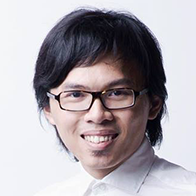The Democrat presidential debate kicked off in the United States last week. Normally, a person seeking the office of the president of the United States would have to go through the primary election, win the party nomination, and finally face off with the nominated presidential candidate from the other party.
 The first of five rounds of debate pitted heavyweight Hillary Clinton against the underdog Bernie Sanders.
The first of five rounds of debate pitted heavyweight Hillary Clinton against the underdog Bernie Sanders.
There were three other guys on the stage but all eyes were on Clinton and and Sanders.
Both were eloquent in expressing their views and why they should be president, and touched on important issues such as wealth disparity, income inequality, institutionalised racism, gun control, healthcare, and foreign policy.
Why are the debates such an essential component of American democracy? Why did the Americans do this?
No matter how much we disdain the Americans for their foreign policy and Wall Street influence on Congress, few would deny that such debates in America are sorely lacking in Malaysia.
Debate is important because it allows all candidates to express their vision for the country, to defend themselves from allegations made by others, and to give voters the chance to evaluate the candidate based on his/her plans and ideas.
Crucially, the debate acts as “the great equaliser”.
No matter how much disadvantaged a certain candidate is (some candidates have more money and are given more media attention than others), once the candidates are on the stage, they are all treated equally.
They are judged solely based on their conviction, ideas, and vision.
This is especially true in the case of John F. Kennedy, Barack Obama, and Bernie Sanders.
Both JFK and Obama were seen as inexperience newcomers, and obviously did not have much clout among the media, special interest groups, corporations, and banks.
Their eloquent performance in the debates gave them the big breaks they needed.
This time round, Sanders has been consistently ignored by the mainstream media.
For many voters, it was the Democratic primary debate that presented him to them for the first time.
There and then, they learned the answers to their questions such as “who is this guy?” and “what are his plans for the country?”
In the aftermath of the debate, the media overwhelmingly portrayed Clinton as the winner.
But since the debate is televised live throughout the country, the viewers can judge for themselves who has the better vision and conviction, and who they would like to be their president.
In almost all subsequent pro-Clinton posts on CNN’s Facebook page, the top comments were all pro-Sanders.
When will we have such debates in Malaysia? Why are our leaders not willing to debate with each other and let the rakyat vote based on informed decision?
It is important that the voters hear and know the leader’s plans for the country and not just vote along partisan line and emotional sentiments.
Present your vision to us and let us decide which vision of the country we want. It is despairing to think that debates were part of our culture in the past.
Contrary to the perception that “debate is not our culture”, we had had a long history of debates.
Every year, we have school debate competitions. Students are encouraged and intensely trained to win debate competitions such as Piala Perdana Menteri.
Our university students represent Malaysia at the international debate competitions. Some of our debaters are the best in the world. And still you refuse to recognise debate as our culture?
Just a few years ago, we reached a new level of maturity in our politics. We had debates between senior politicians on live television!
We were on the verge of accepting debate as the new normal – the new standard demanded of our politicians.
On live television (albeit on the less known TV9), Datuk Seri Ahmad Shabery Cheek debated with Datuk Seri Anwar Ibrahim regarding oil price.
The motion was “Hari Ini Tubuh Kerajaan, Esok Turun Harga Minyak”. Shabery defended the government’s decision to increase oil price (an issue that affects everyone) while Anwar made the case to decrease oil price.
Both were given the chance to attack the weakness of each other’s arguments.
In the second round of live debate, Datuk Seri Chua Soi Lek went up against Lim Guan Eng, twice.
It is telling that those televised debates occurred during the premiership of Tun Abdullah Ahmad Badawi, and not the others.
Debates are also good so that we know the leader and vision of the country that we are voting for.
Instead of backdoor manoeuvres, which might suddenly witness a realignment of forces and change of leaders, the rakyat will know for sure that the person debating on behalf of the party/coalition is the nominated leader of that party/coalition.
Whether it is GE14, GE15, or beyond, we ought to have real substantive debates between our politicians.
Those who seek public office ought to present a plan directly to the people rather than relying on mere rhetoric and coverage through secondary sources such as the media.
Present your vision directly to the rakyat and let the competing visions clash. We will be the judge. – October 17, 2015.
* This is the personal opinion of the writer or publication and does not necessarily represent the views of The Malaysian Insider.


Comments
Please refrain from nicknames or comments of a racist, sexist, personal, vulgar or derogatory nature, or you may risk being blocked from commenting in our website. We encourage commenters to use their real names as their username. As comments are moderated, they may not appear immediately or even on the same day you posted them. We also reserve the right to delete off-topic comments